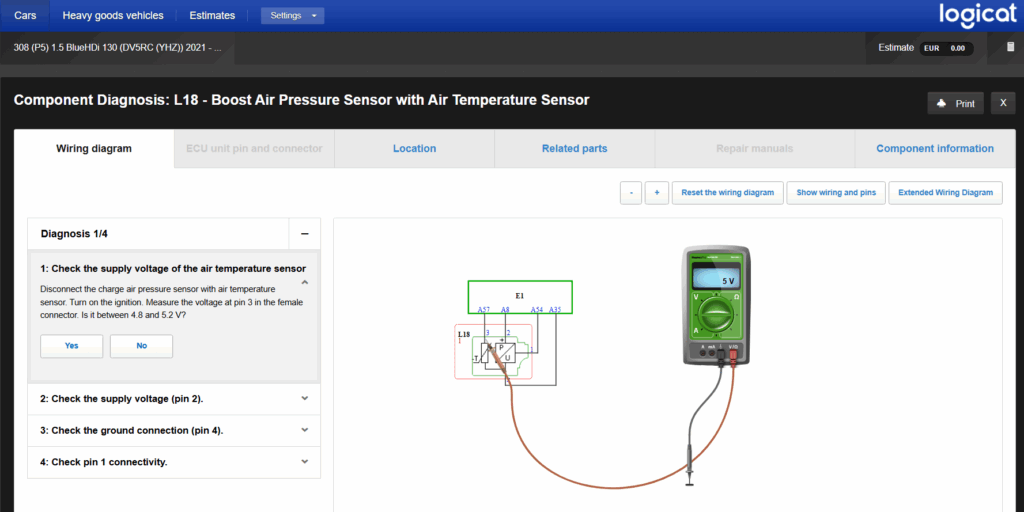In the workshop, a customer showing up with a worrying engine noise whether it’s a ticking or knocking sound at idle is nothing unusual. But there’s a big difference between a minor timing noise and a knocking sound that signals a serious engine failure… potentially costing thousands of euros in repairs.
To avoid misdiagnosis, a professional diagnostic tool like HaynesPro becomes an essential ally. Here are 5 common causes of engine noise, their possible origins, and most importantly how to quickly confirm the source of the noise using HaynesPro’s reliable, OEM-sourced data.

1. Metallic ticking noise when cold
– Common causes:
- Valve clearance
- Worn hydraulic lifter
- Worn timing chain tensioner
An engine ticking noise when cold can sometimes be mistaken for normal operation, but it often hides an early-stage mechanical fault.
✅ Diagnosis with HaynesPro:
In the Engine Management module, HaynesPro provides complete timing diagrams, specific mechanical tolerances and clearances for the engine in question, along with technical bulletins for known issues on certain engine types.
2. Knocking noise during acceleration
– Common causes:
- Defective connecting rod
- Incorrect injection timing
- Poor fuel quality
✅ Diagnosis with HaynesPro:
The Smart Electronics module gives access to engine injection diagrams and key sensor data (e.g., crankshaft position, knock sensor) with live data readings to confirm issues such as faulty injectors or incorrect timing advance.
3. Low-frequency humming or whistling at low RPM
– Common causes:
- Worn alternator pulley
- Loose auxiliary belt
- Failing belt tensioner
✅ Diagnosis with HaynesPro:
HaynesPro provides interactive diagrams and layouts for engine belts and accessories. The technician can quickly locate components that require inspection or replacement.
4. Vibrations or knocking under load
– Common causes:
- Worn engine mount
- Faulty knock sensor
- Irregular turbo boost
✅ Diagnosis with HaynesPro:
Using live engine data, you can analyze readings from the boost pressure sensor, knock sensor, and access testing procedures for noisy or failing turbochargers.
5. Deep knocking at idle + power loss
– Common causes:
- Failing injector
- Clogged DPF or EGR valve
- Turbocharger malfunction
✅ Diagnosis with HaynesPro:
The VESA system helps isolate components like injectors, check associated OBD fault codes (e.g., P0263), and access step-by-step guided testing procedures to validate the issue before disassembly.
Case study: Peugeot 308 1.5 BlueHDi – abnormal engine noise during deceleration
In a workshop near Lyon, a customer complains of a high-pitched and irregular whistling noise during deceleration on their Peugeot 308 1.5 BlueHDi. The sound suggests a potential turbocharger fault, but confirmation without dismantling is challenging.
The technician uses HaynesPro to:
- Check live boost pressure sensor readings
- Consult the turbocharger test procedure specific to this engine
- Access OEM technical bulletins that confirm a known issue affecting certain production series

✅ Result:
The fault was confirmed using live data without disassembly, allowing for a targeted turbo replacement, time savings, and a transparent repair billed to the customer.
Choose the subscription that fits your workshop and start diagnosing faster and more accurately:
Try HaynesPro free and start saving valuable time from your very first diagnosis:


